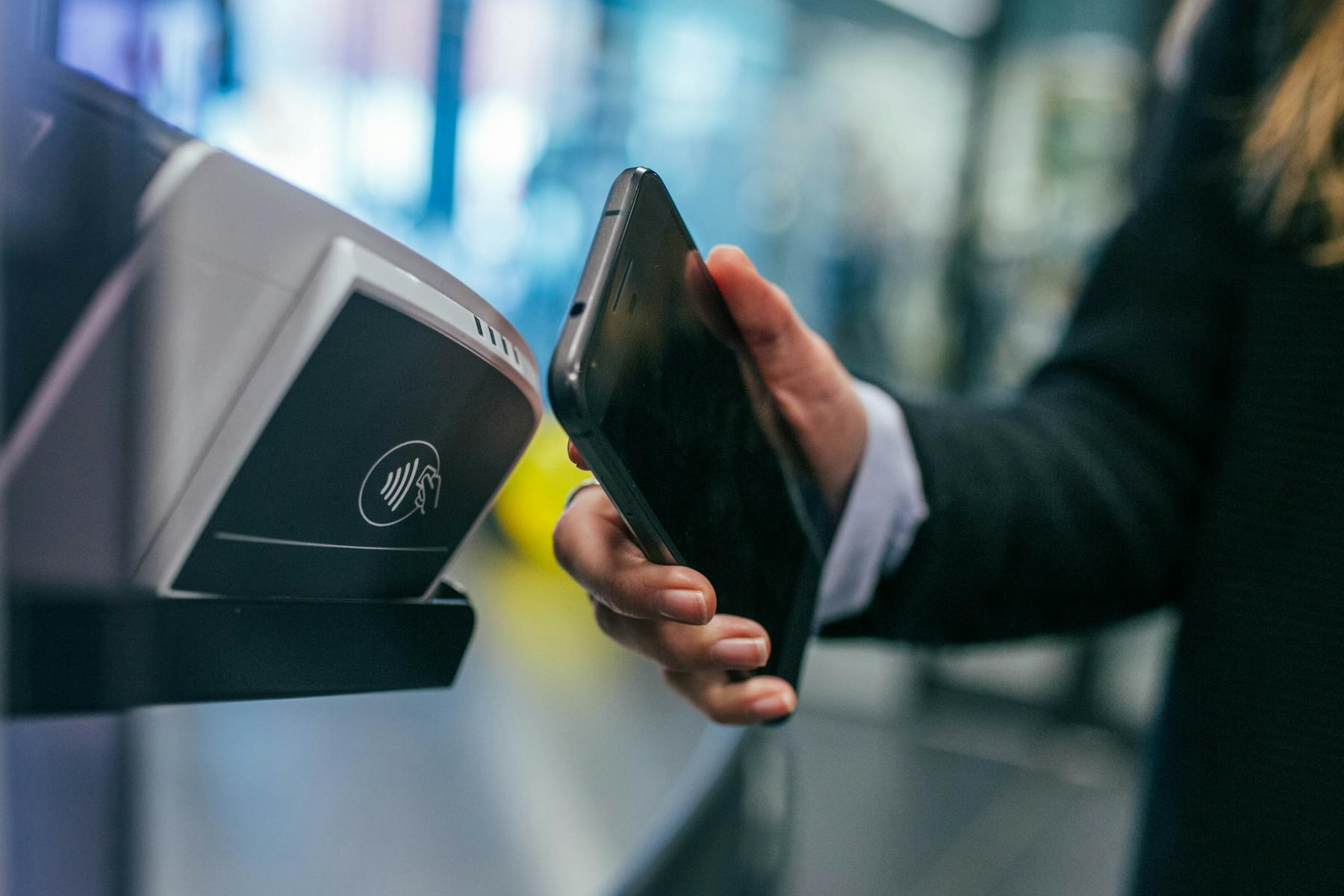 Jonas Leupe
Jonas Leupe The 7 Best Credit Cards You Can Use in Canada in 2024

Jarrod Suda
Guide

A writer and editor at Monito, Jarrod is passionate about helping people apply today’s powerful finance technologies to their lives. He brings his background in international affairs and his experiences living in Japan to provide readers with comprehensive information that also acknowledges the local context.
Links on this page, including products and brands featured on ‘Sponsored’ content, may earn us an affiliate commission. This does not affect the opinions and recommendations of our editors.
Read moreIf you're a US tourist in Canada or an American who frequently visits our northern neighbor, then you could get hit with foreign transaction fees every time you swipe your American credit card in Canada. The same goes when you occasionally need to withdrawal Canadian dollars.
In this guide, we'll delve into credit cards widely accepted throughout Canada, ensuring you can make purchases without worrying about international fees. Additionally, these credit cards offer rewards for your spending.
We'll also suggest debit cards offering fee-free withdrawals and mid-market currency exchange like Revolut and Wise for accessing cash in Canada when you need to leave a tip or grab a quick meal.
7 Best Travel Credit Cards to Use in Canada in 2024
- 01. Revolut Standard Card — Cheapest way to get cash and lounge access
- 02. Wise Multi-Currency Card — Best prepaid travel debit card
- 03. Chase Sapphire Preferred® Card — Best for dining and travel points
- 04. Capital One Venture Rewards Credit Card — Best intro offer
- 05. American Express® Gold Card — Best way to redeem at airlines
- 06. Capital One Venture X Rewards Credit Card — Best premium travel card
- 07. Tangerine Money-Back Credit Card — Best cash back for CA residents
The Best US Credit Cards to Use in Canada in 2024
Explore the best cards for travel spending in Canada this vacation season. In addition to a credit card without foreign transaction fees that earns points on purchases, also consider a debit card to take out cash cheaply from ATMs.
Product | Card | Foreign Transaction Fee | Exchange Rate | APR on Purchases | Annual Fee | Offers | Points | Website |
|---|---|---|---|---|---|---|---|---|
Revolut Standard Travel Debit Card | 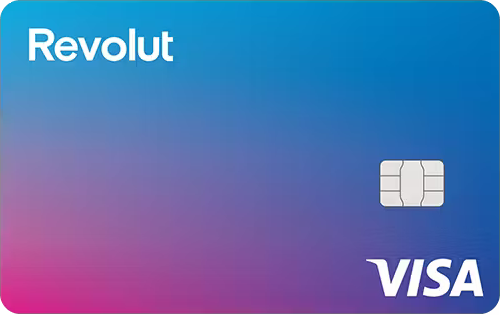 | None | mid-market rate to plan limit, then Revolut rate | N/A | $0 | Access airport lounges worldwide for $37 | Up to 5% cash back | Visit |
Wise Multi-Currency Card |  | None | mid-market rate, plus a fixed fee | N/A | $0 | Spend your CAD balance like a local | None | Visit |
Chase Sapphire Preferred® Card | 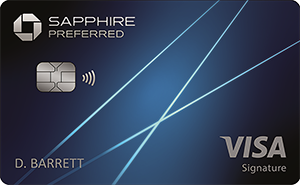 | None | Visa network rate | 21.49% – 28.49% variable | $95 | 60,000 points after spending $4,000 in first 3 months | 1x – 5x | Visit |
Capital One Venture Rewards Credit Card |  | None | Visa or Mastercard network rate | 19.99% – 29.99% variable | $95 | 75,000 miles after spending $4,000 in first 3 months | 2x – 5x | Visit |
American Express® Gold Card | 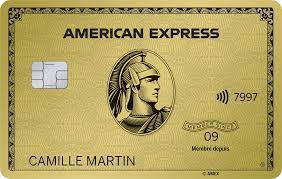 | None | AMEX network rate | 21.24% – 29.24% variable | $250 | 60,000 points after spending $6,000 in first 6 months | 1x – 4x | Visit |
Capital One Venture X Rewards Credit Card | 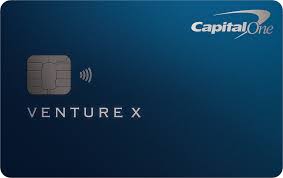 | None | Visa or Mastercard network rate | 19.99% – 29.99% variable | $395 | 75,000 miles after spending $4,000 in first 3 months | 2x – 10x | Visit |
Tangerine Money-Back Credit Card |  | 2.5% | Mastercard network rate | 19.95% | $0 | 10% cash back on up to $1,000 within first 2 months | 2x | Visit |
Data quoted 26 March 2024
What Major Credit Cards Are Accepted at Retailers in Canada?
In Canada, Visa and Mastercard are universally accepted. American Express is also widely accepted at major retailers, and many small businesses (90,000 in total according to AMEX).
Just make sure to opt for credit cards that bypass foreign transaction fees. We'll outline some of the best options later in this article.
Potential Fees When Using US Credit Cards in Canada
Watch out for these four fees when spending abroad in the Great White North:
- Foreign Transaction Fee: Standard fees typically amount to 3% per transaction, which can quickly accumulate, costing $30 for every $1,000 spent.
- Dynamic Currency Conversion (DCC) Fee: This is also called a merchant currency conversion fee. Opting for payment in your home currency (USD) instead of local currency (CAD) can result in higher fees. Always choose to pay in CAD in Canada.
- Cash Advance Fee: Using your credit card to withdraw cash incurs additional interest fees imposed by the issuer.
- ATM Fee: ATMs often charge fees for cash withdrawals. This fee is hard to avoid, but you can try finding a bank within the Global ATM Alliance that waives ATM fees.
How Can I Avoid Fees When Traveling to Canada?
You can steer clear of fees if you prepare ahead with the right debit and credit card:
- Opt for credit cards that waive foreign transaction fees.
- Always pay in the local currency (CAD) to avoid merchant currency conversion fees. Alternatively, use multi-currency debit cards like Wise and Revolut to avoid the DCC process altogether.
- Use debit cards for cash withdrawals to avoid cash advance fees.
- For cash withdrawals, try finding banks within the Global ATM Alliance, such as Scotiabank in Canada.
Revolut Travel Multi-Currency Debit Card
Revolut provides an excellent option for accessing cash affordably in Canada. With its generous ATM withdrawal policy allowing up to $400 worth of free withdrawals per month, you can conveniently convert your USD deposits to CAD within the mobile app before making transactions. This enables ATMs to recognize your Revolut card as a local card, eliminating the need for dynamic currency conversion fees.
Revolut offers the added convenience of lounge access not only at major airports like VYR and YYZ in Canada but also globally, for a fee of $37 per person. This one-time fee is much cheaper than the high annual membership fees charged by many credit cards offering lounge access. Additionally, as a paid member of Revolut's higher tiers, you'll enjoy discounts on lounge access and access to a suite of travel insurance benefits.
While the paid tiers offer higher allowances and more perks, this is what you'll get under Revolut's Standard plan:
- No monthly fee for the Standard Plan;
- $400 of fee-free ATM withdrawals per month, then a 2% fee;
- Airport lounge passes for $37 per person;
- Supports 35 currency balances including CAD;
- No FX fee for the first $1,000 exchanged monthly;
- Revolut's FX rate is industry-low, usually ~0.5% (check live here).
Learn more: Read our in-depth Revolut review or watch our video review.
Wise Multi-Currency Card
The Wise Multi-Currency Account is a convenient choice if you only need a small amount of cash in Canada, as Wise offers a $100 limit on fee-free withdrawals per month. Beyond this limit, withdrawals incur a $1.50 fee plus 2%. On my travels, I use Wise as a back up to Revolut for cash needs.
If you don't anticipate needing cash, Wise is still an excellent debit option for card or digital wallet purchases. Wise applies the mid-market exchange rate to your purchases, with an industry-low fee of around 0.5%.
However, it's worth noting that Revolut offers a slightly better deal with $1,000 of fee-free exchanges per month, a feature that Wise does not offer.
Here are benefits of the Wise multi-currency account at a glance:
- Opening an account costs $0;
- Offers $100 fee-free ATM withdrawals per month;
- Supports over 40 currencies, including CAD;
- Offers foreign bank details for 10 countries;
- Uses the mid-market rate (check live here), with a small fixed fee.
Learn more: Read our in-depth Wise review or watch our video review.
Do not fall for the dynamic currency conversion trap.
When prompted by ATMs abroad to pay in either USD or the local currency, always choose the local currency. At ATMs in Canada, always choose to pay in CAD.
Chase Sapphire Preferred® Card
The Chase Sapphire Preferred Card is a staple in my Apple Wallet, serving as my go-to card for all card transactions. Back when I earned the bonus offer, I was able to pay for a round-trip flight from Japan to California, when redeemed through Chase Travel.
For the perks that Chase offers, the $95 annual fee is very reasonable. You'll pay 21.49%–28.49% variable APR on unpaid balances, so pay your monthly balance on time in full to avoid accumulating interest.
Here's a breakdown of the card's offerings:
- Earn 60,000 points after meeting a $4,000 spend in the first 3 months;
- Get $50 in credits each year for hotels through Chase Travel;
- 5x points on travel booked through Chase Travel;
- 2x on other travel purchases;
- 3x points on dining, online groceries, and select streaming services;
- 1x points on all other purchases;
- Each anniversary, get points equal to 10% of total yearly purchases;
- 1:1 point transfer to partners;
- Comprehensive travel and purchase coverage;
- Uses Visa network rate (check live rate here);
- No foreign transaction fees.
Capital One Venture Rewards Credit Card
My brother chose this card for last year for his international travels, largely for its generous bonus offer and the simplicity of earning 2x miles on every purchase. He was confident he would meet the spending threshold to secure the bonus miles, which helped him cover the entire cost of a US to EU round trip this year. The next time I plan a big flight, this will be the first card I consider to help me with the cost.
The card carries a $95 annual fee, a great trade for the value it delivers, especially for avid travelers. The 19.99% - 29.99% variable APR is similar to that of Chase. It's wise to pay off your full balance monthly to avoid interest.
Here's what makes the Capital One Venture Card a great option for travelers to Canada:
- Earn 75,000 miles after meeting a $4,000 spend in the first 3 months;
- Unlimited 2x miles;
- Earn 5x miles on hotels and rental cars through Capital One Travel;
- If you find a better price with 24 hours, Capital One will match it;
- Get up to $50 in travel credit if price drops within 10 days of booking;
- Emergency replacement and cash advance if card is lost or stolen;
- Flexibility to transfer miles to over 15+ travel loyalty programs;
- Uses Visa (check here) or Mastercard network rate (check here);
- No foreign transaction fees.
American Express® Gold Card
The American Express® Gold Card is an appealing option for those looking for a travel card from American Express, which is known for its points programs. This card is best for domestic spending within the USA since some spending categories can only earn extra points within the country. AMEX has the most airline points transfer partners of any major U.S. credit card loyalty program, making it an ideal card to help you pay for your flight to Canada.
Some of the best airlines active in Canada that also allow the transfer of AMEX points include Aeroplan-Air Canada, Air France, British Airways, Cathay Pacific, Delta, Emirates, Etihad, Hawaiian, Iberia, Qantas, Singapore Airlines, and Virgin Atlantic.
With a $250 annual fee, the AMEX Gold Card is more expensive than the other cards on this list. But when compared to other AMEX cards, this one is fairly average in terms of price (The Green Card has a $150 annual fee while the Platinum Card's fee is $695). AMEX Gold charges a variable APR of 21.24% to 29.24%.
Here are the benefits that come with this AMEX credit card:
- Earn 60,000 points after meeting a $6,000 spend in the first 6 months;
- 4x points at restaurants worldwide;
- 4x points for takeout and delivery in the US;
- 4x points at U.S. supermarkets (on up to $25,000 per year);
- 3x points on flights booked directly with airlines or on AMEX Travel;
- 1x points on other eligible purchases;
- $120 Dining Credit, up to $10 monthly at participating partners;
- $120 Uber Cash, get $10 each month for Uber;
- Receive $100 credit with a two-night minimum stay on AMEX Travel;
- Uses AMEX network rate (check here);
- No foreign transaction fees.
Capital One Venture X Rewards Credit Card
The Capital One Venture X credit card is one of the best-priced premium cards on the market, offering exceptional benefits for frequent travelers. It has an incredible 10x reward rate on hotels and rental cars booked through Capital One's portal and 5x on flight purchases, with 2x on all other purchases. The card essentially pays for itself with a $300 travel credit applicable to any booking through Capital One's travel portal.
The 19.99% - 29.99% variable APR is the same as the regular Venture Rewards card. The main up front difference is the $395 annual fee, as opposed to the Venture card's $95 annual fee.
Here are the key benefits of the Venture X card:
- Earn 75,000 points after meeting a $4,000 spend in the first 3 months;
- Receive 10,000 bonus miles every year starting on first anniversary;
- $300 annual credit for bookings through Capital One Travel;
- Up to $100 credit for Global Entry or TSA PreCheck®;
- If you find a better price with 24 hours, Capital One will match it;
- Get up to $50 in travel credit if price drops within 10 days of booking;
- Unlimited lounge access for you and 2 guests worldwide;
- Hertz President’s Circle status for free car upgrades;
- Uses Visa (check here) or Mastercard network rate (check here);
- No foreign transaction fees.
Tangerine Money-Back Credit Card
If you live in Canada, you can consider getting a Canadian credit card for local purchases in addition to using your American travel cards. We think the Tangerine Money-Back Credit Card is the best cash back card for Canadians for a few reasons.
Firstly, its unique feature allows you to personalize the categories where you earn cash back. If you're someone who frequently spends on gas, groceries, and dining out, for example, then you can earn a solid 2% cash back in these categories. Tangerine offers many more categories to choose from.
We also took a look at the Scotia Momentum® Visa Infinite Card, a strong competitor. However, the Scotia card offers an almost identical bonus reward and comes with a steep annual fee.
This Tangerine card is for Canadian residents and citizens, charging a Purchase APR of 19.95%. It imposes a 2.5% foreign transaction fee, so make sure to only use it inside of Canada:
- Earn 10% cash back on up to $1,000 in first 2 months;
- Customise to get up to three cash-back categories at 2%;
- No annual fee;
- Offers a promotional balance transfer rate of 1.95% for 6 months;
- Purchase Assurance and Extended Warranty coverage up to $60,000;
- Free cards for up to 5 Authorized Users on your Account.
What Are the Best US Credit Cards to Use in Canada For Travel in 2024?
Revolut stands out as the best option for withdrawing cash at ATMs in Canada, thanks to its generous $400 monthly fee-free withdrawal limit. If you exceed this limit, Wise is a reliable backup, also doubling as an excellent debit card for international spending.
When it comes to Chase and Capital One, it's a tough call for me; I'd use both if I wanted. The great AMEX Gold rewards program pays for itself, but also seems like a better tool to rack up miles before heading to Canada.
Ultimately, your choice of card for your trip to Canada will likely hinge on a mix of cash withdrawal needs, earning points while on your trip, and using accumulated points to pay for your flights:
- Revolut Standard Card — Cheapest way to get cash and lounge access
- Wise Multi-Currency Card — Best prepaid travel debit card
- Chase Sapphire Preferred® Card — Best for dining and travel points
- Capital One Venture Rewards Credit Card — Best intro offer
- American Express® Gold Card — Best way to transfer points to flights
- Capital One Venture X Rewards Credit Card — Best premium travel
- Tangerine Money-Back Credit Card — Best cash back for Canadians
How Credit Cards Work
Credit cards enable cardholders to make purchases by borrowing money from the card issuer, within a set credit limit. When a merchant accepts your credit card, the credit card company verifies the purchase amount and transfers funds to the merchant, who incurs a fee for this service.
Subsequently, you repay the credit card issuer for the borrowed sum each month. Failure to pay the full amount by the due date incurs interest on the remaining balance.
How to Choose the Right Credit Card
When selecting a credit card, consider factors such as your spending habits, rewards preferences, annual fees, interest rates, and additional benefits like travel insurance or purchase protection:
- Credit Score: Your credit score determines your eligibility for certain cards, as issuers want assurance of your ability to repay debts. Higher-tier cards typically require higher credit scores. For instance, premium cards like the Chase Sapphire Reserve® usually target applicants with excellent credit scores (typically above 720).
- Annual Fee: Decide whether you're willing to pay an annual fee for enhanced benefits. Cards with annual fees often offer superior perks. For example, the American Express® Gold Card comes with a $250 annual fee but offers generous rewards and benefits, including dining and travel credits.
- Rewards: Consider the type of rewards you prefer. Whether it's cash back, travel points, or miles, choosing a card that aligns with your spending habits and redemption preferences can maximize your rewards. Cash back is the most straightforward while using miles is quite complicated. But if you know how to navigate miles programs, then you can make your dollar take you quite far.
- Earn Rate: Look for cards with elevated earn rates in categories where you frequently spend. For instance, if you spend heavily on groceries and dining, a card like the Capital One Savor Cash Rewards Credit Card, offering a higher earn rate in these categories, may be suitable.
- Welcome Bonus: When comparing similar cards, consider those with a better sign-up offer. While this should not be the main factor when choosing a credit card, the welcome bonus can be worth a substantial amount of money.
- Additional Perks: When you travel to Canada, you will need a card with no foreign transaction fees. Also consider travel insurance, extended warranty, and airport lounge access. These perks can add substantial value to your card and enhance your overall experience.
How Credit Card Rewards Work
Credit card rewards typically fall into four main categories:
- Cash Back: This category offers straightforward rewards in the form of cash rebates on your purchases.
- Travel Rewards: Travel rewards credit cards accrue points or miles that can be redeemed for flights, hotel stays, rental cars, and other travel-related expenses.
- General Rewards: These cards provide a variety of redemption options, including gift cards, event tickets, merchandise, and experiences.
- Store-Specific Rewards: Co-branded credit cards tied to specific retailers (like Costco) allow you to earn points or rewards for purchases made at that particular store.
The earn rate is the most significant factor in accumulating rewards. Many cards offer a base earn rate of 1 point per $1 spent, with accelerated rates of 2x or more for specific categories such as gas, dining, flights, hotels, groceries, and more. Premium cards may even offer earn rates ranging from 5x to 10x points in these categories.
Each type of reward has its unique redemption process:
- For cash back rewards, you typically receive a statement credit or have the option to deposit the cash back into your bank account once you pay your credit card bill.
- Travel rewards can be redeemed by buying flights through the issuer's travel portal or by transferring points to partner airlines' frequent flyer programs.
- General rewards may allow you to redeem points for merchandise, gift cards, event tickets, or other shopping perks.
- Store-specific rewards often enable you to redeem points for discounts, free products, or exclusive offers at the affiliated retailer.
How Credit Card Interest Works
Credit card interest is determined by the annual percentage rate (APR), representing the cost of borrowing on the card. For example, if a card has a 25% APR, it means that for every $100 you borrow, you'll owe $25 in interest annually.
Let's illustrate this with an example: Suppose you spend $1,000 on your credit card during a billing cycle. If you don't pay off the balance by the end of the month, interest will accrue on the outstanding balance at the 25% APR.
Here's how the monthly interest fee is calculated:
- Divide the APR by 12 to get the monthly interest rate: 25% / 12 = 0.02083.
- Multiply the outstanding balance ($1000) by the monthly interest rate: $1000 * 0.02083 = $20.83.
- This means you'll incur approximately $20.83 in interest fees for that month.
If you continue to carry the same balance from month to month, the interest will compound, meaning you'll owe interest not only on the original balance but also on the interest accrued in previous months. We strongly recommend that you pay off credit card balances in full every month to avoid interest charges.
Types of Credit Card Interest Rates
You'll be charged different interest rates depending on the type of purchase you make:
- Purchase APR: This is the interest rate applied to purchases made with the card. It's a standard rate you'll incur when you buy things at merchants using your credit card.
- Balance Transfer APR: This rate applies when you transfer balances from other cards onto this one. Usually, the aim here is to get a lower interest rate by consolidating your debt. This kind of APR is still typically higher than the purchase APR.
- Cash Advance APR: This rate is applied when you obtain cash advances from the card, such as withdrawing cash from ATMs. The rate is higher because cash advances are considered riskier for the issuer. Use a debit card for ATM withdrawals to avoid incurring this higher rate.
Pros and Cons of Credit Cards
One of the most significant benefits of using credit cards is the built-in protection against fraud, as purchases are authenticated by the issuer. In cases of fraudulent activity, the issuer takes responsibility and advocates on your behalf.
However, the major drawback is the potential to accumulate into debt if you don't pay the balance back in full each month, leading to compounding interest charges.
Pros of Credit Cards
- Credit cards offer purchase protection, reimbursing cardholders for damaged or stolen items within a certain timeframe.
- They provide convenient payment options for both online and in-store transactions.
- Responsible credit card use can help build a positive credit history, essential for future financial endeavors.
- Many cards offer rewards such as cash back and travel perks.
Cons of Credit Cards
- High-interest rates apply to unpaid balances, leading to additional interest charges if not paid in full each month.
- Some cards have annual fees, potentially offsetting benefits if you don't take advantage of the rewards and benefits.
- Credit cards can encourage overspending and accumulation of debt, posing financial risks if not managed carefully.
Can I Use My Credit Card in Canada?
Yes, the most widely accepted credit cards in Canada are issued by Visa, Mastercard, and American Express. These cards are accepted at most merchants across the country, including restaurants, retailers, and online stores.
When you visit Canada from abroad, you may be charged a foreign transaction fee on your card purchases. To avoid this fee, choose a credit card that charges no foreign transaction fees.
It's also important to call you credit card issuer ahead of time, or notify them through their mobile apps/website portals, to notify them that you will be in Canada. By providing travel notices, you can prevent the inconvenience of having your account frozen due to perceived suspicious activity.
Frequently Asked Questions About the Best Credit Card to Use in Canada
Can I use a US credit card in Canada?
Any US credit card bearing the Visa or Mastercard logo will work in Canada. Just make sure your card does not charge foreign transaction fees, as these can accumulate quickly.
What is the currency in Canada?
In Canada, the official currency is the Canadian dollar (CAD). Canadian banknotes are issued in denominations of $5, $10, $20, $50, and $100, with coins available in 1¢, 5¢, 10¢, 25¢, $1 (loonie), and $2 (toonie).
Can I use my Visa credit card in Canada?
Yes, Visa (and Mastercard) are accepted in nearly all establishments that take cards, like hotels, restaurants, and retail stores.
Can I use credit cards to take out cash in Canada?
Using credit cards for cash withdrawals should be considered an emergency option only, as it triggers a cash advance with high APR charges from your bank. For cash withdrawals, we highly recommend you use debit cards to avoid these high fees.
Is American Express accepted in Canada?
American Express is accepted in many places, but not as commonly as Visa and Mastercard.
Does Canada accept US credit cards?
Yes, many businesses in Canada accept US credit cards, particularly those affiliated with major international payment networks like Visa and Mastercard. American Express is accepted by over 90,000 Canadian businesses. It will be harder to find merchants that accept Discover cards.
Can I use my Discover card in Canada?
Discover credit cards are accepted in Canada at merchants that have a card reader compatible with Discover's payment network. Acceptance is relatively limited, although you will be able to withdraw cash from ATMs of most major Canadian banks with your Discover card.
References Used In This Guide
Revolut. Pricing Plans. Accessed 14 March 2024.
Revolut. Standard Fees. Accessed 14 March 2024.
Wise. Cost to Withdraw Cash. Accessed 14 March 2024.
Chase. Sapphire Preferred Credit Card. Accessed 14 March 2024.
Capital One. Venture Credit Card. Accessed 14 March 2024.
American Express. Gold Credit Card. Accessed 14 March 2024.
Capital One. Venture X Credit Card. Accessed 14 March 2024.
Other Guides on Travel Money and the Best Cards to Use in Canada



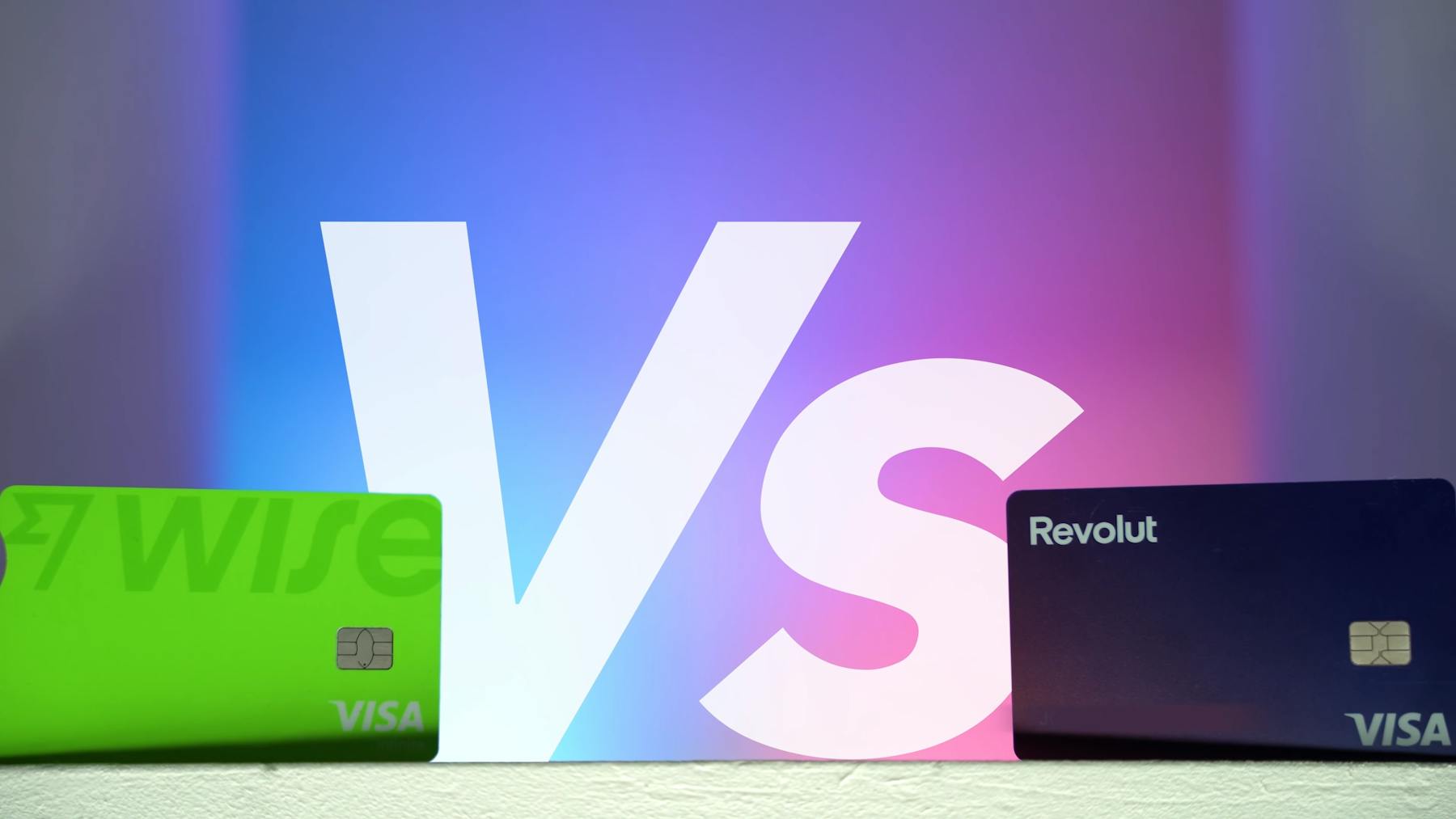
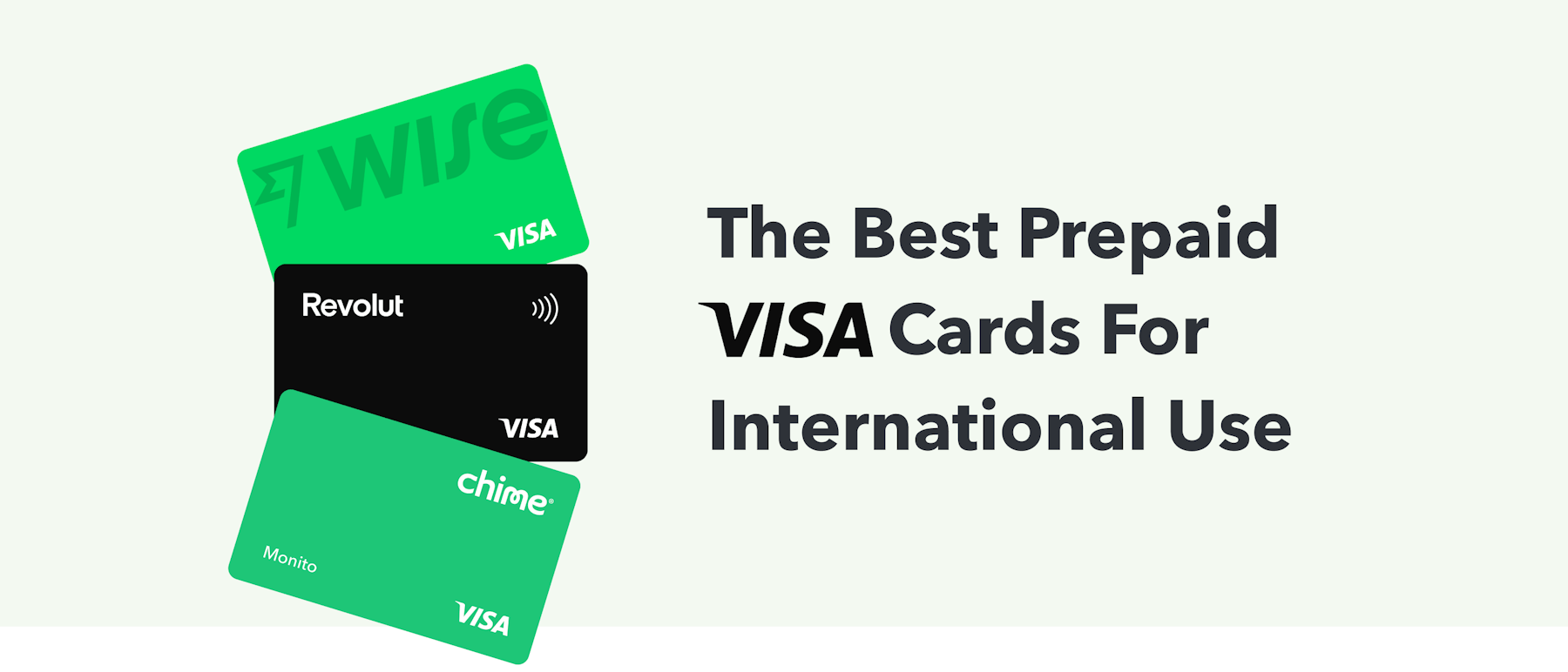













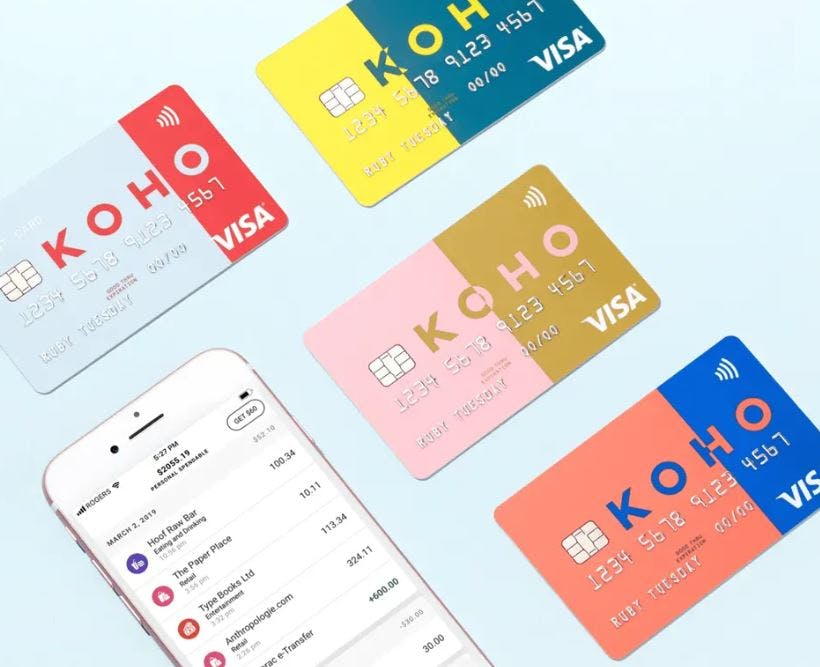

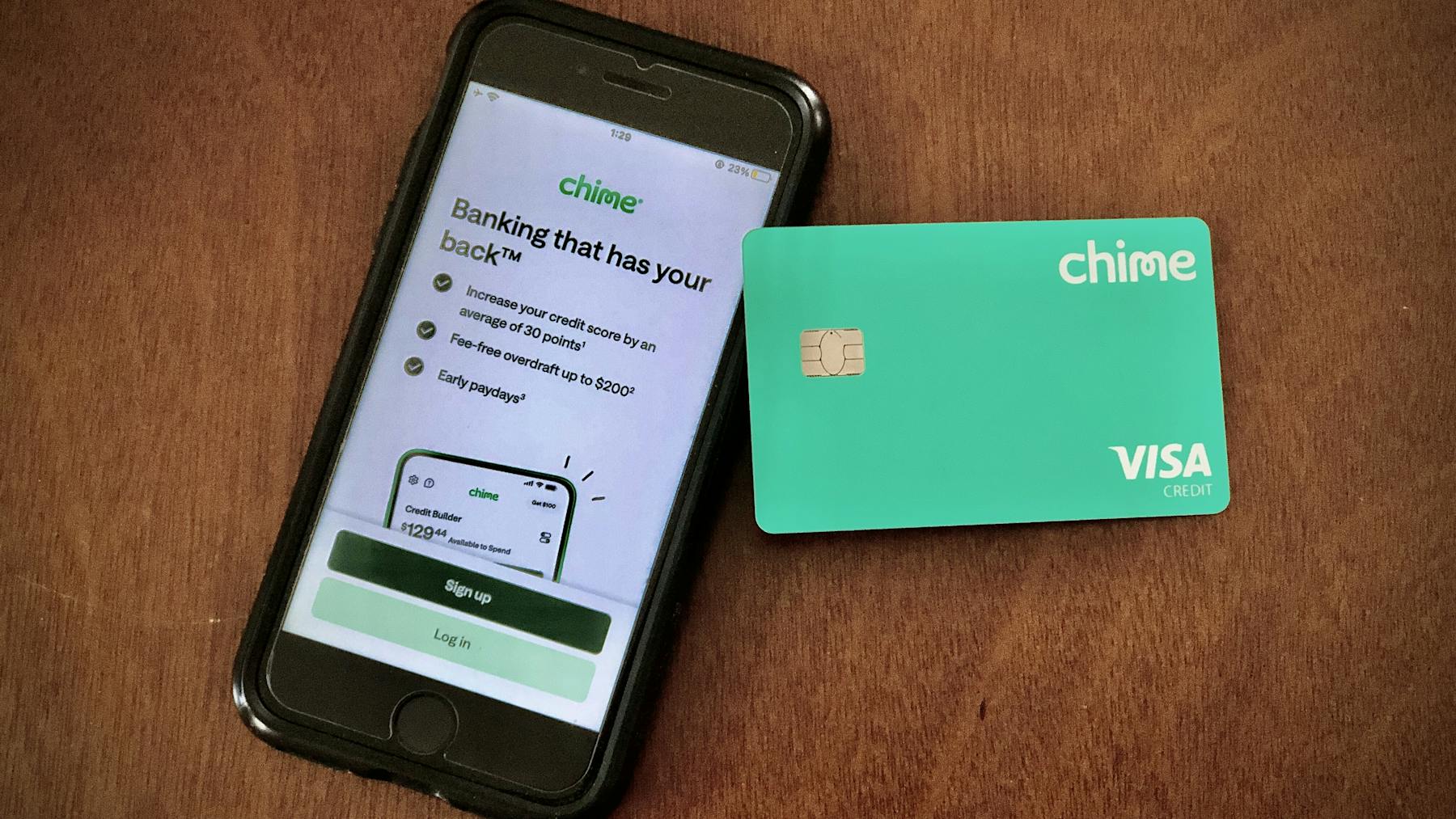

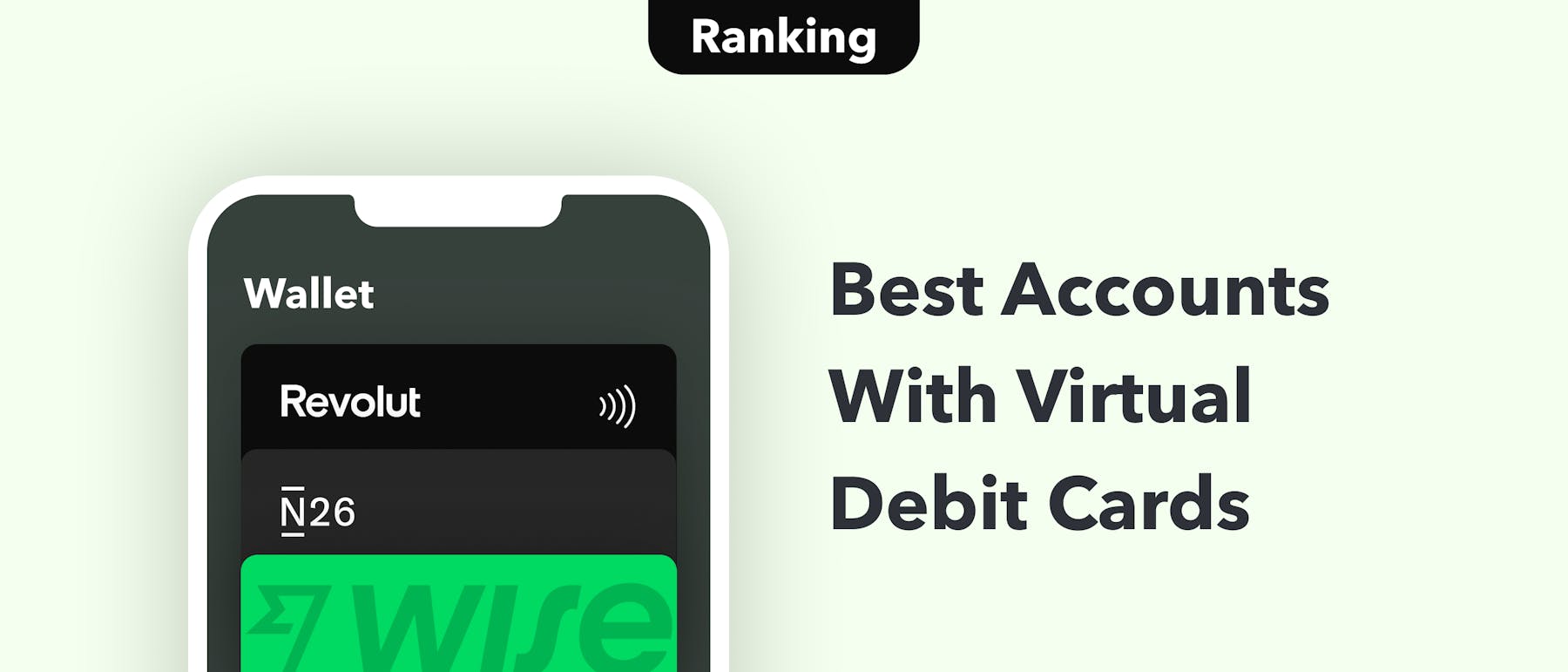
Why Trust Monito?
You’re probably all too familiar with the often outrageous cost of sending money abroad. After facing this frustration themselves back in 2013, co-founders François, Laurent, and Pascal launched a real-time comparison engine to compare the best money transfer services across the globe. Today, Monito’s award-winning comparisons, reviews, and guides are trusted by around 8 million people each year and our recommendations are backed by millions of pricing data points and dozens of expert tests — all allowing you to make the savviest decisions with confidence.
Monito is trusted by 15+ million users across the globe.
Monito's experts spend hours researching and testing services so that you don't have to.
Our recommendations are always unbiased and independent.

